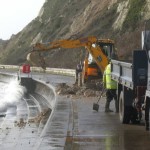This in from those behind the latest bid for a Studio School on the Isle of Wight. If you’ve not heard of Studio Schools before, here’s the background. Ed
The bid for the new Isle of Wight Studio School has been submitted to the Department of Education by Southampton Studio School Academy Trust, it was announced this week.
 One of 29 bids for Studio Schools submitted in England to open in September 2014, the school will be the first of its kind on the Island and cater for up to 300 14 to 19-year-olds in a specially refurbished campus in Grange Road, East Cowes.
One of 29 bids for Studio Schools submitted in England to open in September 2014, the school will be the first of its kind on the Island and cater for up to 300 14 to 19-year-olds in a specially refurbished campus in Grange Road, East Cowes.
Decision due early summer
Southampton Studio School Academy Trust is working in partnership with the Isle of Wight Council on the plans and will learn if the bid is successful by early summer. The Trust already has a proven track record through its successful development of Southampton Studio School, opening its doors in September 2013.
Studio Schools are a brand new state school model for 14 to 19 year olds of all abilities. They seek to address the growing gap between what young people require to succeed in life and the skills and knowledge that the traditional education system provides.
Study with real experience of the world of work
The Isle of Wight Studio School, part of a network of similar schools supported by the Studio Schools Trust, will offer students the opportunity for learning, combining study for traditional examinations with real experience of the world of work.
The school will work closely with local businesses to shape its curriculum and specialise in marine manufacturing and offshore energy. The bid has the support and commitment of Gurit, Vikoma, Navitus Bay, Vestas, IFPL and the Isle of Wight Chamber of Commerce.
Small class sizes
Students will learn in small class sizes through individually structured pathways, each guided by their own personal coach, to inspire learning and develop independence and confidence.
Between ages 14 and 16 students will gain GCSE qualifications in English, maths, double science and information technology and take part in work placements, developing their employability and work skills and a full range of extra curricular and physical activities. Post 16 they choose from a variety of qualifications, including A-levels and apprenticeships.




